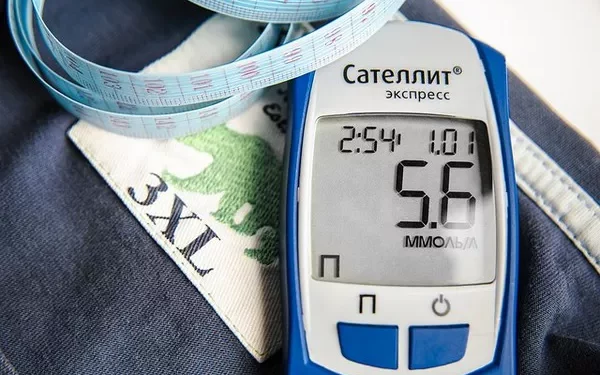Maintaining optimal blood sugar levels is one of the most important factors in managing your overall health, especially for those living with diabetes or pre-diabetes. However, understanding what constitutes a “normal” blood sugar rating is crucial not just for those with medical conditions, but for anyone who seeks to maintain long-term health and prevent serious complications. In this article, we will explore what normal blood sugar levels are, how they are measured, and why it’s important to monitor them.
The Importance of Blood Sugar Monitoring
Blood sugar, also known as blood glucose, is the main source of energy for the body’s cells. It comes from the food we eat and is regulated by insulin, a hormone produced by the pancreas. The body works best when blood sugar levels are kept in a narrow, stable range. High blood sugar (hyperglycemia) or low blood sugar (hypoglycemia) can lead to various health problems, including fatigue, poor circulation, and, over time, organ damage.
For people with diabetes, monitoring blood sugar is an essential part of daily life to avoid these health complications. Even for individuals without diabetes, understanding blood sugar levels can provide insight into how well the body is processing glucose and may serve as an early indicator of developing conditions like pre-diabetes or type 2 diabetes.
What is Blood Sugar?
Blood sugar refers to the concentration of glucose in the bloodstream. Glucose is a type of sugar that the body uses as its primary source of energy. After digestion, carbohydrates in food are broken down into glucose, which enters the bloodstream. The pancreas releases insulin, which helps cells absorb glucose for energy or storage. If blood glucose levels remain elevated or low, it can indicate an underlying issue with this process.
How Blood Sugar is Measured
Blood sugar levels can be measured in several different ways, with each method providing a snapshot of the body’s glucose status at different times. The most common tests include:
Fasting Blood Sugar (FBS) Test: This test measures blood sugar after an overnight fast of at least 8 hours. It provides an indication of how well the body is regulating glucose when it hasn’t eaten for several hours.
Oral Glucose Tolerance Test (OGTT): In this test, the patient drinks a sugary solution, and blood sugar levels are measured at intervals to assess how efficiently the body processes glucose. It is commonly used to diagnose gestational diabetes and pre-diabetes.
Hemoglobin A1c (HbA1c) Test: This blood test measures the average blood sugar levels over the past 2 to 3 months. It is a key tool for assessing long-term blood glucose control and is used in the management of diabetes.
Random Blood Sugar Test: A random blood sugar test is taken at any point during the day, regardless of when the person last ate. It can provide insight into current blood glucose levels but does not give a complete picture of overall control.
What is a Normal Blood Sugar Rating?
The range for normal blood sugar levels can vary depending on factors such as the timing of the test and individual health conditions. However, there are general guidelines provided by health organizations to help understand what constitutes a “normal” blood sugar range.
1. Fasting Blood Sugar (FBS):
Normal range: 70–99 mg/dL (3.9–5.5 mmol/L)
Prediabetes range: 100–125 mg/dL (5.6–6.9 mmol/L)
Diabetes range: 126 mg/dL (7.0 mmol/L) or higher
2. Postprandial Blood Sugar (2 hours after eating):
Normal range: Less than 140 mg/dL (7.8 mmol/L)
Prediabetes range: 140–199 mg/dL (7.8–11.0 mmol/L)
Diabetes range: 200 mg/dL (11.1 mmol/L) or higher
3. Hemoglobin A1c (HbA1c):
Normal range: Below 5.7%
Prediabetes range: 5.7% to 6.4%
Diabetes range: 6.5% or higher
Factors Influencing Blood Sugar Levels
Several factors can affect blood sugar levels, and some of these may cause fluctuations even in people who do not have diabetes. These include:
Diet: The types of food you eat can have a significant impact on blood sugar levels. Foods that are high in carbohydrates, especially refined sugars, can cause blood glucose levels to rise rapidly. Conversely, a diet rich in fiber, healthy fats, and lean proteins can help maintain stable blood sugar levels.
Exercise: Physical activity helps the body use glucose more efficiently, lowering blood sugar levels. Regular exercise is crucial for maintaining healthy blood sugar levels and preventing complications related to both high and low glucose.
Stress: When the body is under stress, it releases hormones like cortisol and adrenaline, which can raise blood sugar levels. Chronic stress can contribute to the development of insulin resistance and high blood sugar.
Medications: Certain medications, such as corticosteroids and some blood pressure medications, can elevate blood sugar levels. Individuals taking these drugs should monitor their blood glucose closely.
Illness: When you’re sick, your body produces hormones to fight infection, which can cause an increase in blood sugar levels. People with diabetes should check their blood sugar more frequently when ill.
Why is it Important to Maintain Normal Blood Sugar Levels?
Maintaining blood sugar within a normal range is essential to prevent both short-term and long-term health complications. The body works optimally when blood glucose levels are stable, and this has a direct effect on energy levels, mood, and overall functioning.
Short-term benefits of normal blood sugar levels:
Energy stability: When blood sugar is within the normal range, the body can efficiently use glucose as fuel, leading to stable energy levels throughout the day.
Reduced risk of hypoglycemia: Maintaining normal blood sugar reduces the risk of hypoglycemia (low blood sugar), which can cause symptoms like dizziness, confusion, and fainting.
Long-term benefits of normal blood sugar levels:
Prevention of diabetic complications: Chronic high blood sugar can lead to damage to blood vessels, nerves, and organs. This can result in complications like heart disease, kidney disease, vision problems, and neuropathy. Maintaining normal blood sugar helps reduce the risk of these conditions.
Better quality of life: Keeping blood sugar levels under control promotes better overall health, reduces the risk of chronic disease, and improves longevity.
How to Keep Blood Sugar Within Normal Range
For individuals with diabetes or those at risk, maintaining normal blood sugar levels requires active management. Here are some strategies to help keep your blood glucose in check:
Adopt a balanced diet: Focus on a well-rounded diet that includes plenty of vegetables, whole grains, lean proteins, and healthy fats. Avoid sugary snacks and beverages, as they can cause blood sugar spikes.
Exercise regularly: Engaging in regular physical activity helps improve insulin sensitivity and promotes better blood glucose control. Aim for at least 150 minutes of moderate-intensity exercise each week.
Monitor blood sugar levels regularly: Use a glucose meter to check your blood sugar at regular intervals. This helps you understand how your body responds to different foods, activities, and stress.
Take prescribed medications: If you have diabetes, take any prescribed medications as directed by your healthcare provider. These may include oral medications or insulin therapy.
Manage stress: Find healthy ways to cope with stress, such as meditation, yoga, or deep breathing exercises. Stress management can have a positive impact on blood glucose control.
Get enough sleep: Poor sleep can affect insulin sensitivity and cause blood sugar to fluctuate. Aim for 7–9 hours of quality sleep per night.
Conclusion
Understanding what constitutes a normal blood sugar rating is essential for maintaining overall health. For most individuals, keeping blood sugar levels within the recommended range can help prevent diabetes, heart disease, and other serious complications. If you have diabetes or are at risk, regular monitoring of your blood glucose levels is critical. A combination of a healthy diet, regular exercise, stress management, and, when necessary, medication can help you maintain normal blood sugar and lead a healthier life.
If you’re unsure about what constitutes a normal blood sugar level for you, consult your healthcare provider, who can help create a personalized plan tailored to your needs.
Related topics:



























